Concerned about how your regular diet will affect your growing baby? You’ve come to the right place! Heidi Murkoff’s got all the important information on special diets and pregnancy for worried moms-to-be, excerpted from her newly updated pregnancy bible What to Expect When You’re Expecting.
 Milk-Free Diet
Milk-Free Diet
“I’m lactose intolerant, and drinking 4 glasses of milk a day would make me feel really sick. But don’t babies need milk?”
It’s not milk your baby needs, it’s calcium. Since milk is one of nature’s finest and most convenient sources of calcium in the American diet, it’s the one most often recommended for filling the greatly increased requirement during pregnancy. But if milk leaves you with more than a sour taste in your mouth and a white mustache above your lips (got gas?), you probably think twice before reaching for that glass of the white stuff. Fortunately, you don’t have to suffer so your baby can grow healthy teeth and bones. If you’re lactose intolerant or just don’t have a taste for milk, plenty of substitutes are available that fill the nutritional bill just as well.
Even if regular milk turns your tummy, you can easily turn to lactose-free varieties (ditto other lactose-free dairy). You may find that your tummy tolerates hard cheeses and fully processed yogurts (the active cultures in them actually help your digestion), as well as dairy products made from pasteurized goat’s or sheep’s milk. Another advantage of using lactose-free milk products: Some are fortified with extra calcium (check labels and choose one that is). Taking a lactase tablet before ingesting regular milk or milk products, or adding lactase drops to regular milk, can also minimize or eliminate dairy-induced tummy troubles.
Even if you’ve been lactose intolerant for years, you may be pleasantly surprised to discover that your tummy no longer puts up a fuss in the second and third trimester, conveniently when baby’s needs for calcium are greatest. If so, go ahead and indulge in dairy—just keep in mind that your tummy may have its limits, so keep those lactose-free options open, too. Also remember, your free pass to the dairy case will probably expire once baby arrives.
If you can’t handle any dairy products or are allergic to them, you can still get all the calcium your baby requires by drinking calcium-fortified juices or almond milk and eating the nondairy foods listed under calcium foods here.
If your problem with milk isn’t physiological but just a matter of taste, try some of the dairy or nondairy calcium-rich alternatives. There are bound to be plenty that your taste buds can embrace. Or disguise your milk in cereal, soups, and smoothies.
If you can’t seem to get enough calcium into your diet, ask your practitioner to recommend a calcium supplement (there are plenty of chewable varieties that are sweet revenge for those who find a pill hard to swallow). You’ll also need to be sure that you’re getting enough vitamin D (which is added to cow’s milk). Many calcium supplements include vitamin D (which actually boosts absorption of calcium), and you’ll also be getting some in your prenatal supplement.
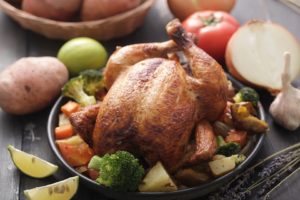 Red-Meat-Free Diet
Red-Meat-Free Diet
“I eat chicken and fish but no red meat. Will my baby get all the necessary nutrients without it?”
Your baby won’t have a beef with your red-meat-free diet. Fish and lean poultry, in fact, give you more baby-building protein and less fat for your calories than most beef, pork, and lamb—making them more efficient pregnancy choices. And like red meat, they’re also rich sources of many of the B vitamins your baby needs. The only nutrient poultry and fish can’t always compete with meat for is iron (duck, turkey, and shellfish are iron-rich exceptions), but there are plenty of other sources of this essential mineral, which is also easy to take in supplement form.
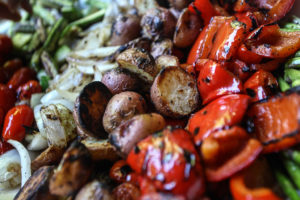 Vegetarian Diet
Vegetarian Diet
“As a vegetarian I’m wondering if I have to change anything in my diet now that I’m expecting a baby.”
Vegetarians of every variety can have healthy babies without compromising their dietary principles—they just have to be a little more careful in planning their diets than meat-eating moms-to-be. When choosing your meat-free menus, make sure you get all of the following:
Enough protein. For the ovo-lacto vegetarian, who eats eggs and dairy products, getting enough protein is as easy as getting enough of these dairy-case favorites (particularly if you seek Greek yogurt, an especially potent protein source). If you’re a vegan (a vegetarian who doesn’t eat any animal products, including eggs and dairy), you may find you’ll need to work a little harder in the protein department, turning to ample quantities of dried beans, peas, lentils, tofu, and other soy products (see box for more vegetarian proteins).
Enough calcium. This is no tall order for the vegetarian who eats dairy products, but it can be trickier for those who don’t. Luckily, dairy products are the most obvious but not the only sources of calcium. Calcium-fortified almond milk and juices offer as much calcium as milk, ounce for ounce (just make sure you shake them before using). Other nondairy dietary sources of calcium include dark leafy green vegetables, sesame seeds, almonds, and many soy products (such as soy milk, soy cheese, tofu, and tempeh). For added insurance, vegans should probably also take a calcium supplement in addition to their prenatal vitamin, so check with your practitioner for a recommendation (preferably one with vitamin D added; see box).
Vitamin B12. Though B12 deficiencies are rare, vegetarians, particularly vegans, often don’t get enough of this vitamin because it is found only in animal foods. So be certain to take supplemental B12, as well as folic acid and iron (ask your practitioner if you need more B12 than what’s provided in your prenatal vitamin). Other dietary sources include B12-fortified soy milk, fortified cereals, nutritional yeast, and fortified meat substitutes.
Vitamin D. Everyone needs vitamin D in their diet, but vegans who aren’t drinking milk or eating fish need to be especially mindful about finding ways to get their D.
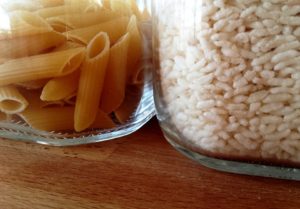 Low-Carb Diet
Low-Carb Diet
“I’ve been on a low-carb/high-protein diet to lose weight. Now that I’m pregnant, can I continue eating this way to keep from gaining too much weight?”
Here’s the low-down on low-carb: When you’re expecting, low isn’t the way to go. Going low on any essential nutrient, in fact, isn’t smart when you’re growing a baby. Your highest pregnancy priority: getting a balance of all the best baby-making ingredients, including the right kind of carbs (those complex ones). As popular as they are, diets that limit all carbohydrates (including fruits, vegetables, and whole grains) limit the nutrients—especially folic acid—that growing fetuses need. And what’s bad for baby can also be bad for mom: Skimp on complex carbohydrates and you’ll be skimping on constipation-fighting fiber, plus all the B vitamins known to battle morning sickness and pregnancy-unsettled skin.
Thinking about being a pregnant Paleo? The Paleo diet, which mimics the menu of our cave-dwelling ancestors, doesn’t quite measure up for modern moms-to-be. Though it includes plenty of animal protein, vegetables, and some fruit and nuts, it excludes dairy, whole grains, and beans, all good sources of essential pregnancy-friendly nutrients. Queasy moms-to-be may also find that having crackers (and bread, and other often stomach-settling carb options) off the table may be challenging.
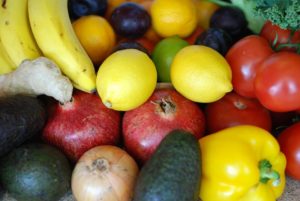 Raw Diet
Raw Diet
“I’ve been eating an all-raw diet, which makes me feel amazing—full of energy. Do I have to stop now that I’m expecting?”
Eating a completely raw diet may be a raw deal for you and your baby, for a couple of reasons. Most important: There’s always the possibility that raw foods may be contaminated with bacteria that cooking or pasteurizing would otherwise kill. That holds true not only for the obvious suspects (raw dairy products, raw meat and fish), but also for “raw” ready-to-eat foods sold in health food markets that aren’t prepared or stored safely. Another consideration: It’s hard to get all the nutrients you need during pregnancy when you’re eating only raw—some vitamins are better absorbed when they’re cooked. The most notable nutrients you’ll miss: vitamins B12 (which is impossible to get from raw, plant-based foods) and D, selenium, zinc, iron, and DHA. Plus, if you’re going all raw, you’ll have a hard time getting your protein quota safely (which vegetarians and vegans can net from cooked beans and quinoa, for instance—something a raw foodie can’t).
A good compromise when you’re expecting? Dig into those raw veggies, serve those salads, and by all means eat that apple (and fresh peach, and fresh mango) a day—but also remember that some foods were made to be cooked (or heat-pasteurized), at least when you’re baking a baby bun.




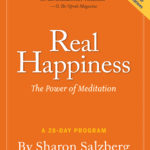
No Comments